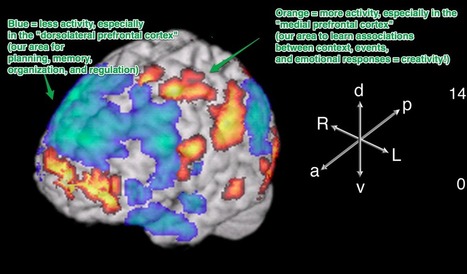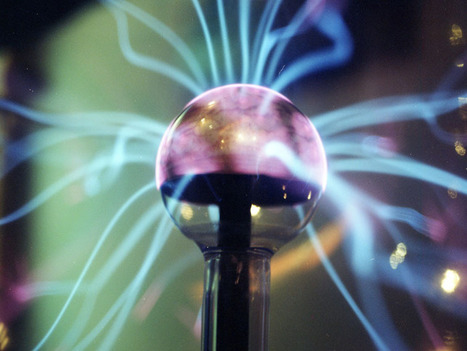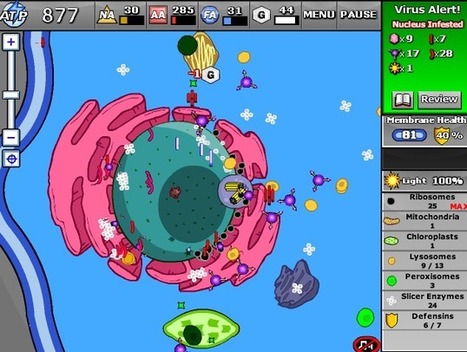by Leo Widrich
"It's a long term, unwritten rule: We get our best ideas in the shower. Why does this happen? Here is an exploration of the science of creativity:
“We think what we see is a relaxation of ‘executive functions’ to allow more natural de-focused attention and uncensored processes to occur that might be the hallmark of creativity,” says Braun.
"So, the areas in our brain, that we use to make decisions is largely inactive. The “medial prefrontal cortex” area, which is responsible to learn association, context, events and emotional responses however was extremely active on the other hand. This graphic of brain activity probably describes it best (see graphic above):



 Your new post is loading...
Your new post is loading...
















A little science to ponder! We are not born creative or non creative. The skills of creativity can be taught. It is a different way of thinking. It is a different way of looking at the world. It is slowing down and asking questions. It is giving yourself permission to take the time. It is....